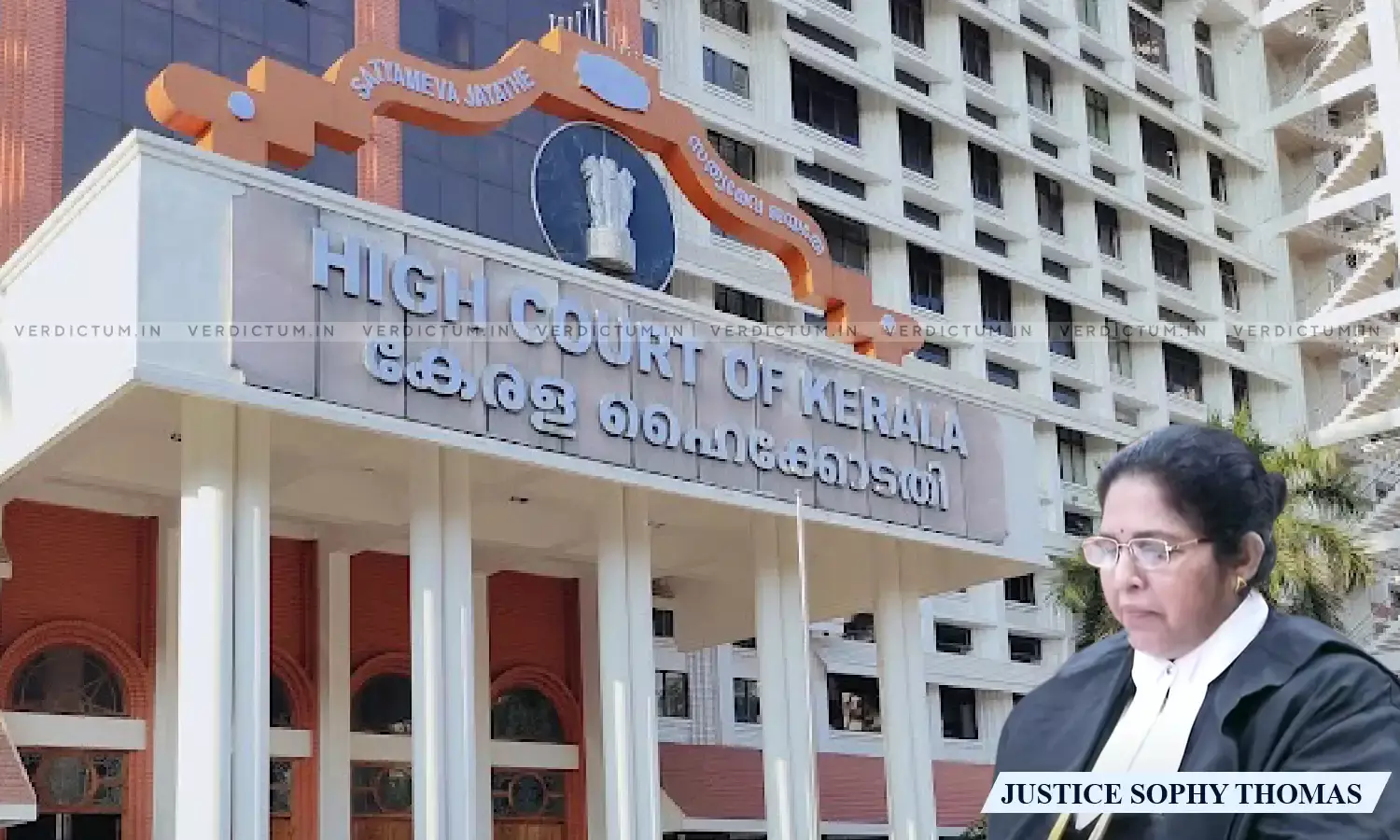Sec 498A IPC: Living Together Based On Marriage Agreement Has No Legal Sanctity, Such Persons To Be Treated As Live-In Partners: Kerala HC

The Kerala High Court, in a case, has held that living together based on a marriage agreement has no legal sanctity in the eyes of law and that such persons must be treated as live-in partners instead of husband and wife, in order to attract an offence under Section 498A of IPC i.e., Cruelty.
In this case, a criminal revision petition was filed against the decision of the Additional Sessions Judge whereby the appeal of the accused persons was allowed only in part, though their prayer was for an honourable acquittal.
A Single Bench of Justice Sophy Thomas observed, “In the case on hand, since the marriage between the 1 st revision petitioner and deceased Chandrika was not solemnised, and they started living together on the basis of a marriage agreement, which has no legal sanctity in the eye of law, they have to be treated as persons in live-in-relation, and they were not husband and wife, in order to attract an offence punishable under Section 498A of IPC. So, the trial court as well as the appellate court went wrong in finding the revision petitioners guilty under Section 498A of IPC and sentencing them for that offence. Even otherwise, Ext.P5, the FI statement of the deceased, as well as Ext.P7, the dying declaration of the deceased, say nothing about the cruelties meted out to her, either by the 1 st revision petitioner or by the 4 th revision petitioner.”
Advocate K.P. Balagopal represented the revision petitioners i.e., accused persons while Public Prosecutor Nima Jacob represented the respondent i.e., State.
Factual Background -
The revision petitioners faced trial for offences punishable under Sections 306 and 498A of IPC, and they were convicted and sentenced to undergo simple imprisonment for four years each and fine of Rs. 2,000/- each under Section 306 of IPC, with a default sentence of two months each and simple imprisonment for one year each and fine of Rs.1,000/- each under Section 498A of IPC with a default sentence of one month each, directing the sentences to run concurrently. In the appeal, the conviction was upheld, but the sentence under Section 306 of IPC was modified and reduced to simple imprisonment for two years each, instead of four years, without modifying the fine amount. According to the revision petitioners, the prosecution utterly failed to prove its case and so, they were liable to be acquitted, and hence they approached the High Court by filing a Revision Petition.
The first revision petitioner fell in love with the deceased and she eloped with him and entered into a marriage agreement and thereafter, they lived together as husband and wife in his house, along with other revision petitioners, who were his parents and brother. The family members were not happy with that marriage and they harassed and humiliated the deceased as she did not bring sufficient patrimony from her house. So, both shifted their residence to a separate house but there also, they continued their ill-treatment, and the revision petitioner also supported them by keeping silence. Unable to bear the ill-treatment and harassment, the deceased attempted suicide by self-immolation using kerosene. Due to the severity of the burn injuries suffered by her, she died at the hospital.
The High Court in the above regard said, “Though the prosecution case is that, Smt.Chandrika was the wife of the 1 st revision petitioner, no evidence was brought out to show that, their marriage was solemnised under any form of marriage either religious or customary. … Even when a marriage was solemnised following the rituals, it may not be legal always, as the validity of a marriage depends on so many factors like age, mental status, religion, consanguinity, spouse living etc. etc. and it varies according to personal law based on religion.”
The Court noted that when there is some form of marriage either religious or customary which has the colour of a legal marriage, then also, the woman can seek protection under Section 498A of IPC though later, for some reason that marriage is found to be invalid in the eyes of law, but when there was no solemnisation of marriage at all, and only live in relationship based on the marriage agreement, then the woman cannot seek shelter under Section 498A of IPC, saying that they were holding out to the society as man and wife by their long cohabitation.
“In the case on hand, there is nothing to show that, on the date of incident, there occurred any quarrel between the deceased and revision petitioners 1 and 4. The deceased did not make any allegations of ill-treatment or harassment against revision petitioners 1 and 4. The trial court as well as the appellate court mainly relied upon the testimony of PWs 4 and 5, to find the revision petitioners guilty of the offences alleged. But, the courts below failed to analyse their evidence in its correct perspective, and there was no chance for the deceased to meet either PW4 or PW5 on the date of incident”, further noted the Court.
The Court concluded that as the revision petitioners (parents) are no more, the charge against them stand abated and that the prosecution failed to prove its case against the revision petitioners.
Accordingly, the High Court allowed the petition and set aside the conviction of the accused persons.
Cause Title- Narayanan & Ors. v. State of Kerala (Neutral Citation: 2023:KER:61827)


